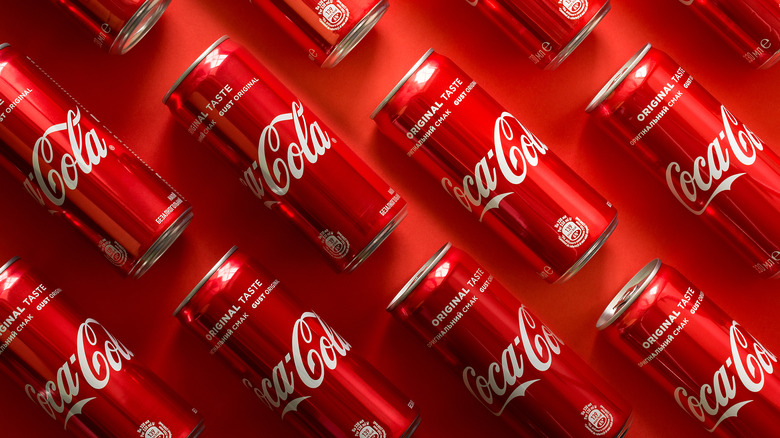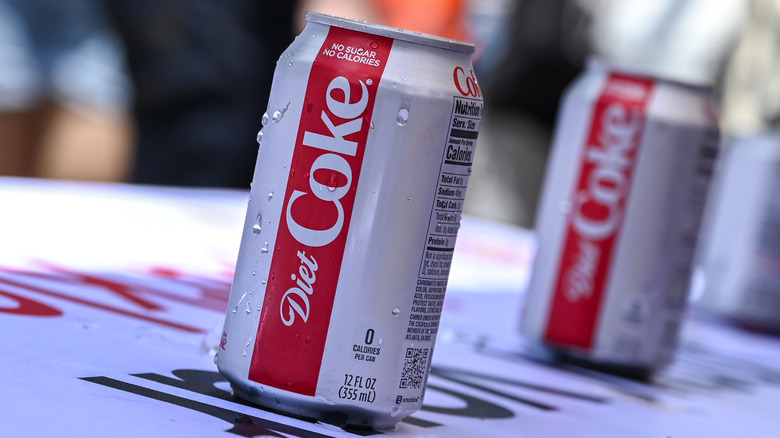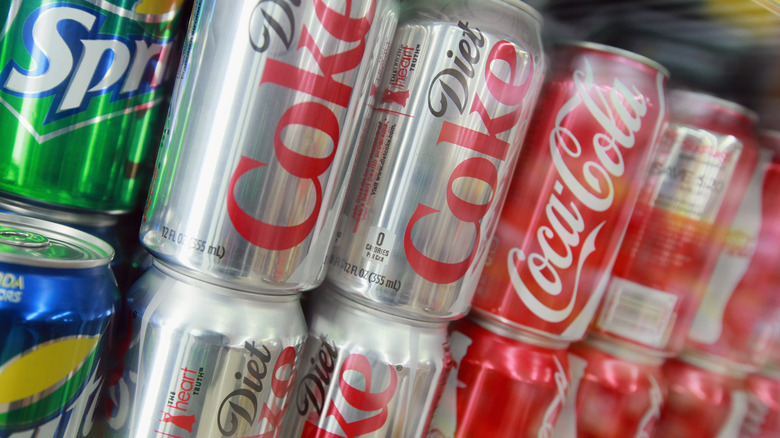The Science Behind Why Diet Coke Cans Float And Regular Coke Sinks
Food and science often go hand-in-hand. While you may not have seen how to bake the best cake as a topic at your middle school science fair, many great science experiments revolve around food. For example, you can create a simple battery using a potato and other household items. If electricity isn't your thing, making homemade butter is a fun and delicious experiment that just about anyone can do. Have some time on your hands? Check out fermentation with yogurt or cheese.
Even if your middle school (or high school) years are far behind you, science can still be a lot of fun. If you like conducting simple science experiments, the kitchen is the perfect place to perform them; they don't have to be too extensive. For example, were you aware that cans of regular Coca-Cola sink, but Diet Coca-Cola cans float? It's true — try it for yourself! There is a scientific explanation behind this fun trick.
Density and sugar are the key
Unopened Diet Coke cans float and unopened regular Coke cans sink due to the difference in densities of the liquids inside the cans, which is related to their respective sugar content. Regular Coke contains sugar, which makes it more dense — or heavier — than water. When a can of regular Coke is placed in water, it sinks because it is heavier than the water. On the other hand, Diet Coke does not contain sugar; instead uses artificial sweeteners. This means Diet Coke is less dense — or lighter — than water. When it is placed in water, it floats because it is less dense than the water.
If you want to perform this experiment, you will need an unopened can of both varieties of soda and a large sink or bucket filled with water. Any soda brand will yield the same results, so you can choose various types to test. Drop the cans into the water one at a time and record if they sink or float.
Sugar makes a difference in other ways
The sugar disparity between regular Coke and Diet Coke is also why the two have different calorie counts. One can of regular Coca-Cola contains nearly 140 calories, while one can of Diet Coke has almost none. The sugar in regular Coke increases its calorie content. That said, sugar is better for preserving soda. While carbonated drinks don't necessarily go bad, they do lose carbonation and flavor past their expiration dates, so for the best quality, you should drink unopened diet soda varieties within three months of their expiration date, and you should consume unopened regular soda varieties within nine months of the expiration date.
Aside from these differences, the sugar and artificial sweeteners don't impact how you can use diet or regular sodas in other instances. Both can be used for various household and cooking hacks that also double as some pretty cool science experiments.


